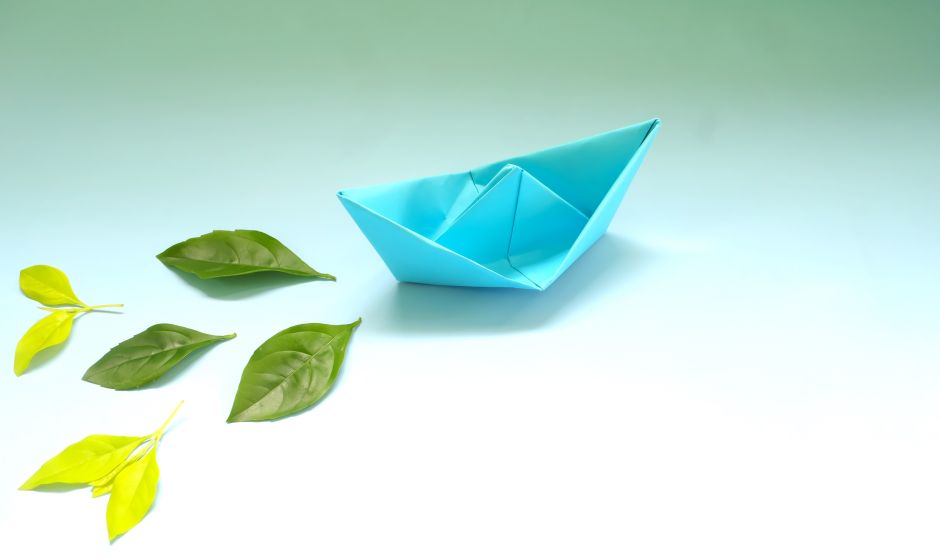77 million SEK to the Sustainable Shipping Program

The Sustainable Shipping industry program, led by Lighthouse for five years, has been evaluated and extended for an additional five years. At the same time, the Swedish Transport Administration (Trafikverket) is increasing research funding from 8.5 to 15.5 million SEK annually.
"It's exciting and a good grade, not only for Lighthouse as the program office but also for the entire network we work with, which succeeds in bringing forward proposals that address relevant issues for the industry and for the development towards a sustainable shipping," says Åsa Burman, Managing Director at Lighthouse.
Since its inception in 2019, the industry program Hållbar sjöfart (Sustainable Shipping) has generated around 50 projects involving approximately 140 stakeholders from industry, academia, and institutes collaborating on issues ranging from alternative fuels and green transition to smart ships, digitalization, security, and both economic and social sustainability.
"A significant benefit of Lighthouse and the industry program, which one might not immediately think of, is that it has gathered large parts of the industry's actors and thereby contributed to welding together the Swedish shipping industry. By discussing issues and proposals, both in a program committee and in a board, they have managed to shape a common understanding of the problems that did not really exist before," says Rikard Engström, strategist and chairman of the Swedish Transport Administration maritime portfolio.
During the fall, the industry program has also been evaluated with very good results. Therefore, it might not come as a big surprise that Trafikverket has now decided to trigger the option and allow Lighthouse to continue running the industry program for another five years. However, it was hardly expected that research funding would almost double.
"It shows that the Swedish Transport Administration is interested and wants to proceed with the industry program, which we hope can create a certain sense of security in the industry. Of course, we also hope that it will pick up even more momentum now with more pre-studies and broader and different projects. There is now also a bit more room for longer research projects. At the same time, one should be aware that 15 million SEK per year is not much money in these contexts, but it can still serve as catalyst money that can be complemented with financing from other sources," says Rikard Engström.
Much has happened both in the world and in maritime research during the five years the industry program has been running. Lighthouse has, for example, been involved in highlighting research on underwater noise, been involved in the research project Oceanbird (which will result in an ocean-going sailing car transporter), and conducted several studies in the project developing a hydrogen-powered Gotlandferry.
"Climate and environmental issues are, of course, important, but we must also not forget safety, social issues, competitiveness, and even things related to redundancy and supply given the current global situation. Research is difficult to predict. In five years, perhaps we will be dealing with an issue that we cannot foresee today," says Åsa Burman.
Among the program's participants are industry organizations such as the Swedish Shipowners' Association and the Swedish Association of Road Transport Companies, shipping companies, ports, marine technology companies, and the Swedish Seamen's Foundation. From academia, participants include Chalmers University of Technology, KTH Royal Institute of Technology, University of Gothenburg, Uppsala University, and Linnaeus University. In addition, research institutes such as RISE Research Institutes of Sweden, IVL Swedish Environmental Research Institute, and the Swedish National Road and Transport Research Institute (VTI), as well as public actors such as the Swedish Maritime Administration and the Västra Götaland Region, are involved.
-
 2025 – ett år präglat av osäkerhet
2025 – ett år präglat av osäkerhet -
 "Ögon på plats” tidigt kan rädda liv
"Ögon på plats” tidigt kan rädda liv -
 Antifoulingfärger testas bäst i strömmande vatten
Antifoulingfärger testas bäst i strömmande vatten -
 Så kan biogasen få en betydande roll för sjöfartens omställning
Så kan biogasen få en betydande roll för sjöfartens omställning -
 Från motorbåt till militärfartyg – traineeprogrammet gav Isak nycklarna till sjöfartsbranschen
Från motorbåt till militärfartyg – traineeprogrammet gav Isak nycklarna till sjöfartsbranschen -
 DNV: Metanol är ett moget alternativt bränsle
DNV: Metanol är ett moget alternativt bränsle -
 Se Hållbar sjöfarts uppsamlingsheat
Se Hållbar sjöfarts uppsamlingsheat -
 NextWave – en podd som ska locka unga
NextWave – en podd som ska locka unga -
 Ny studie: Eldrivna pendelbåtar kan effektivisera Stockholms kollektivtrafik
Ny studie: Eldrivna pendelbåtar kan effektivisera Stockholms kollektivtrafik -
 Sjöfartens utsläpp ökar
Sjöfartens utsläpp ökar

